Maker Series - Chapter 39
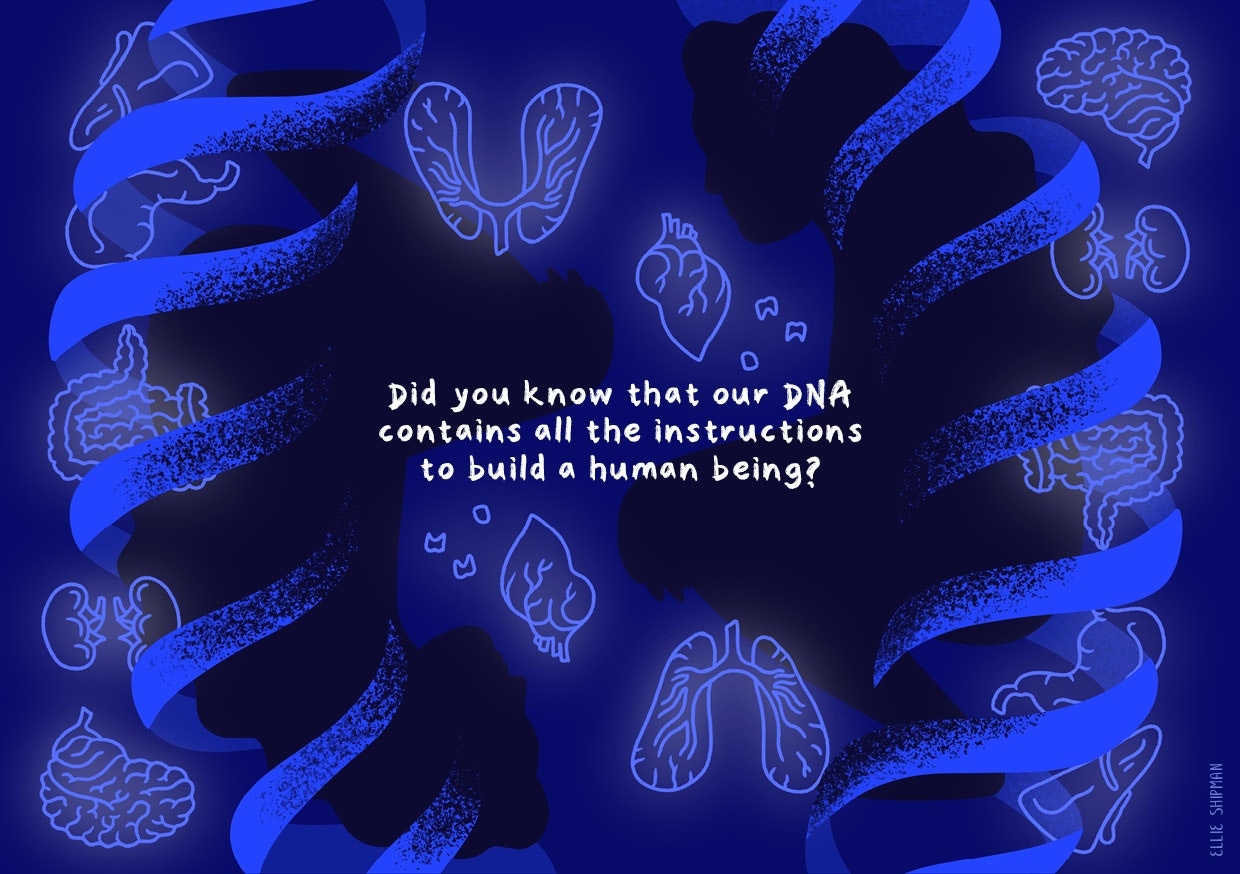
Letterbox Science
Ellie Shipman Illustrator, UK
Ellie Shipman is an illustrator and artist based in Bristol, UK, and working globally. She creates playful, bold illustrations and patterns exploring sustainability, women and wellbeing for editorial, research and campaigns - in other words, hopeful illustration for challenging times.
Ellie studied Fine Art at Chelsea College of Art, UAL, before working in the third sector and as a freelance artist. She later studied a Masters in Sustainable Development at UWE, Bristol alongside her creative practice and aims to embed her values of sustainability and community in all she does.
We got in touch with Ellie to find out more about her recent Illustration project for the University of Cambridge.
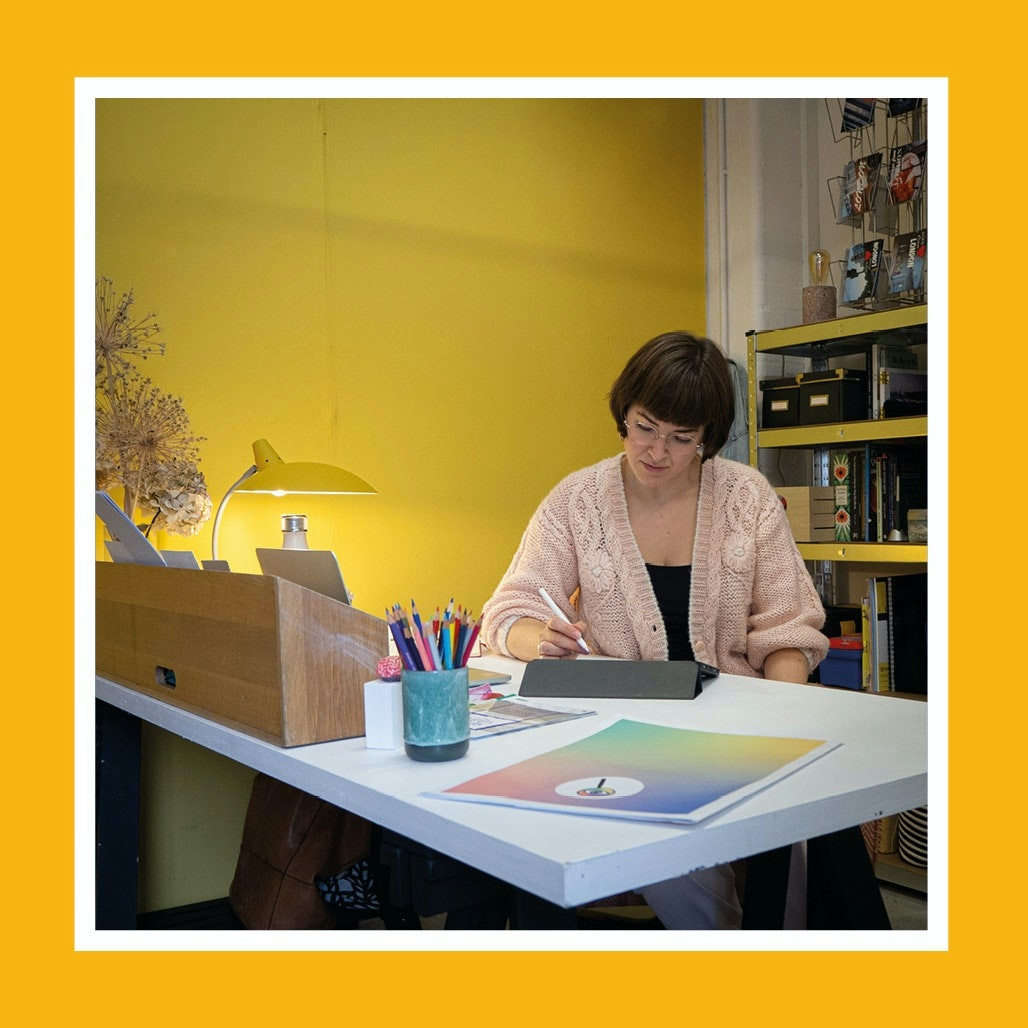
Fabrik: Hi Ellie, we’d love for you to share a little bit more about yourself and background?
Ellie Shipman: Hello! I’m Ellie Shipman, a participatory artist and illustrator based in Bristol, UK. Alongside participatory projects and public art with diverse community groups (eleanorshipman.com), I create playful, bold illustrations exploring sustainability, women and wellbeing for editorial, research and campaigns - in other words, hopeful illustration for challenging times (ellieshipman.com).
I studied BA Fine Art at Chelsea College of Art, UAL, before working part time in the third sector alongside my freelance art practice. During my undergrad I became fascinated with socially engaged art, and how even the process of making art can become richer through co-design and collaboration with members of the public. I developed my participatory practice following my degree show where I made an alternative souvenir stall for London with various local community groups (Untitled (With Heart from London, 2011). This paved the way for my future work, where most project structures feature conversations and live research with community groups, followed by co-design workshops and an interactive and accessible final artwork in mediums from textile banners, to aluminium quilts or participatory installations.
After 6 years in London I moved to Bristol in 2014, where I studied a Masters in Sustainable Development at UWE. I wanted to embed my values of sustainability into my art practice, and ended up writing my thesis on how participatory art can use community development methods to engage people in climate resilience. This helped shape the direction for my art practice and the types of clients I wanted to work with and support - those who share my values.
My illustration practice developed from a need to step away from facilitating live projects after losing my father in 2018, as well as getting back to the joy of drawing which I had moved away from during my degree. My husband and I took a year out to live in Vietnam (inevitably taking part in creative projects there too!) but it helped hone my illustration style and work out next steps for my practice. I now have two portfolios - one for participatory projects and one for illustration.
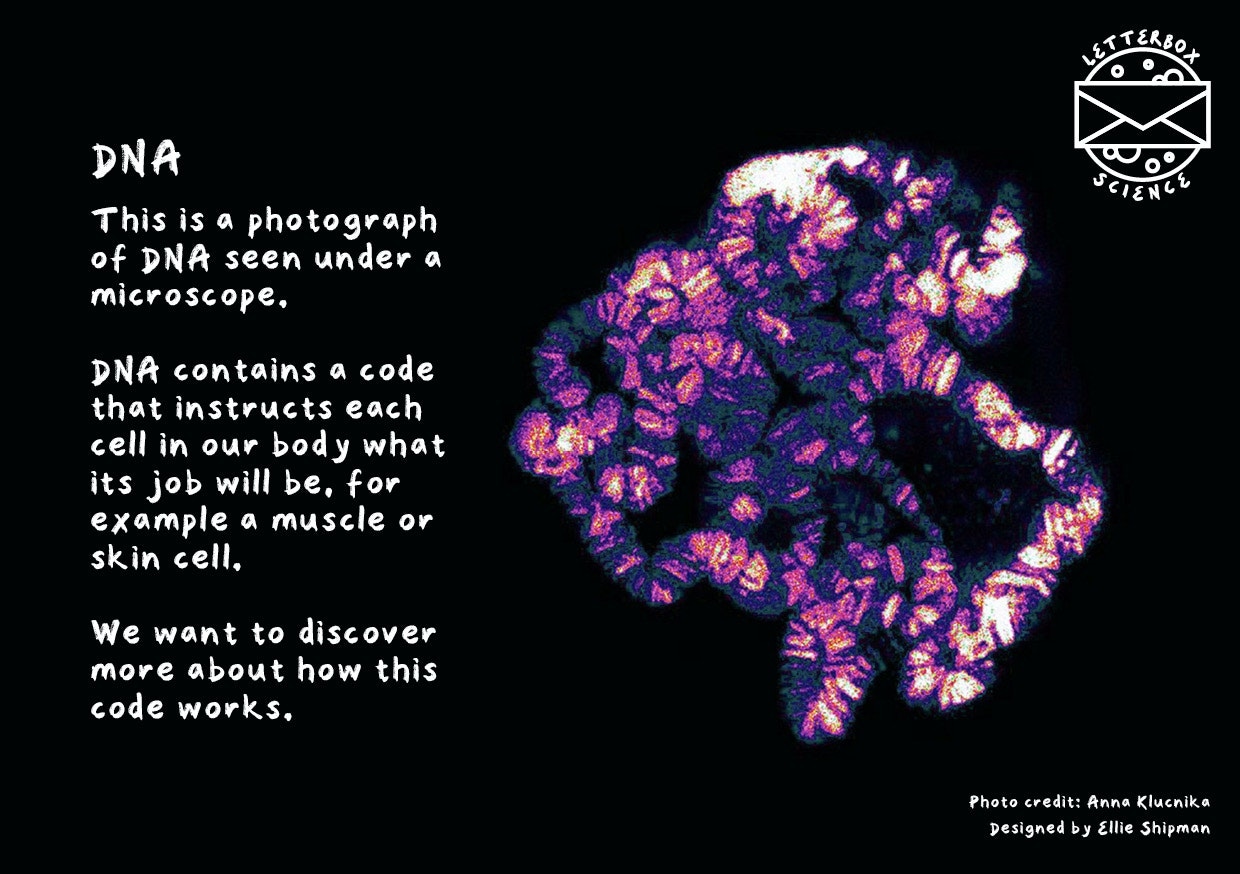
"I wanted to embed my values of sustainability into my art practice, and ended up writing my thesis on how participatory art can use community development methods to engage people in climate resilience."
Fabrik: Can you summarise the creative brief for your Letterbox Science project?
Ellie Shipman: The University of Cambridge got in touch to initiate a project where two of their biologists wanted to hear ideas from school children and older people on their understanding of biology and what they would want to explore if they were scientists to help inform their research. I previously worked in Public Engagement at the University of Bristol, so I have a good understanding of how researchers want to connect with the public and exchange their learning and knowledge with others, as well as an understanding of the importance of visual accessibility.
The commission was a series of postcards (alongside a logo and explainer poster) which would be sent out to schools and care homes as an invitation to exchange ideas and initiate a dialogue between the researchers and the public. This was a lovely way to combine my advice and knowledge around participatory projects with illustration.
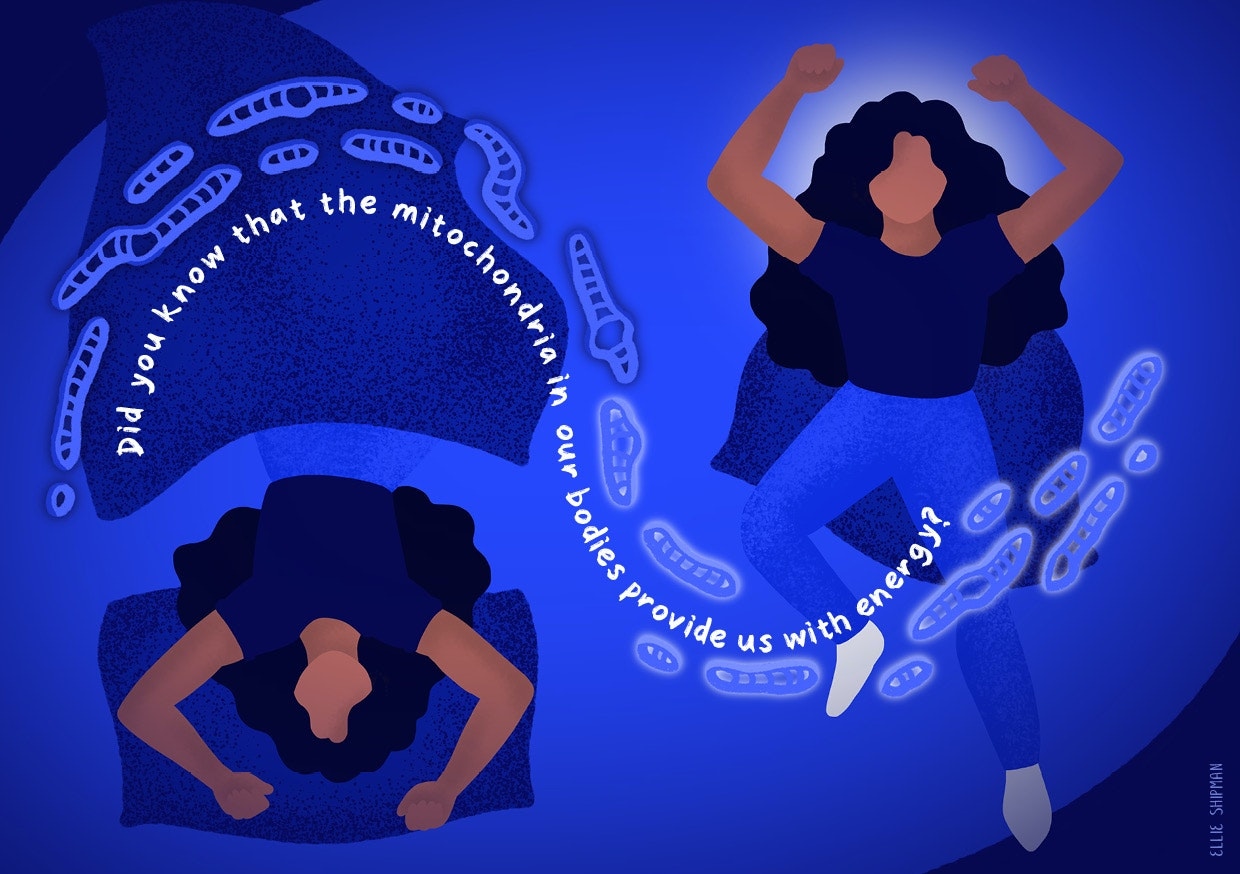
Fabrik: Could you tell us more about your creative process?
Ellie Shipman: The creative process for this project began with calls with the biologists and the Public Engagement team at the university to help identify what they wanted from the project and work out their engagement processes. I wanted to ensure that the postcards would be accessible and engaging for both children and older people so designed them in a way I felt was open for interpretation and somewhat vague in terms of visual representation of age or even gender. I developed some initial drafts using Procreate and my iPad and sent them over for feedback. After a few rounds of feedback the final versions were ready, along with an illustration of the biologists and a logo for the project.
Fabrik: You have worked on multiple projects for the University of Cambridge. As an Illustrator and Artist, what do you feel is key to building long-standing professional relationships with both clients and other creatives you work alongside?
Ellie Shipman: Clients are always reassured when you have worked in their industry and can understand the opportunities and challenges they face with any commission. Working with universities has certainly proved this to be true, as well as my experience working in Community Development at Bristol City Council and for charities such as Age UK or galleries like Cubitt Gallery. These roles have all been part time but I am now full time freelance and they are still benefitting my creative practice and client relationships. Other than this, of course building relationships based on clear communication and expectations, trust, flexibility and an element of playfulness is key in my view.
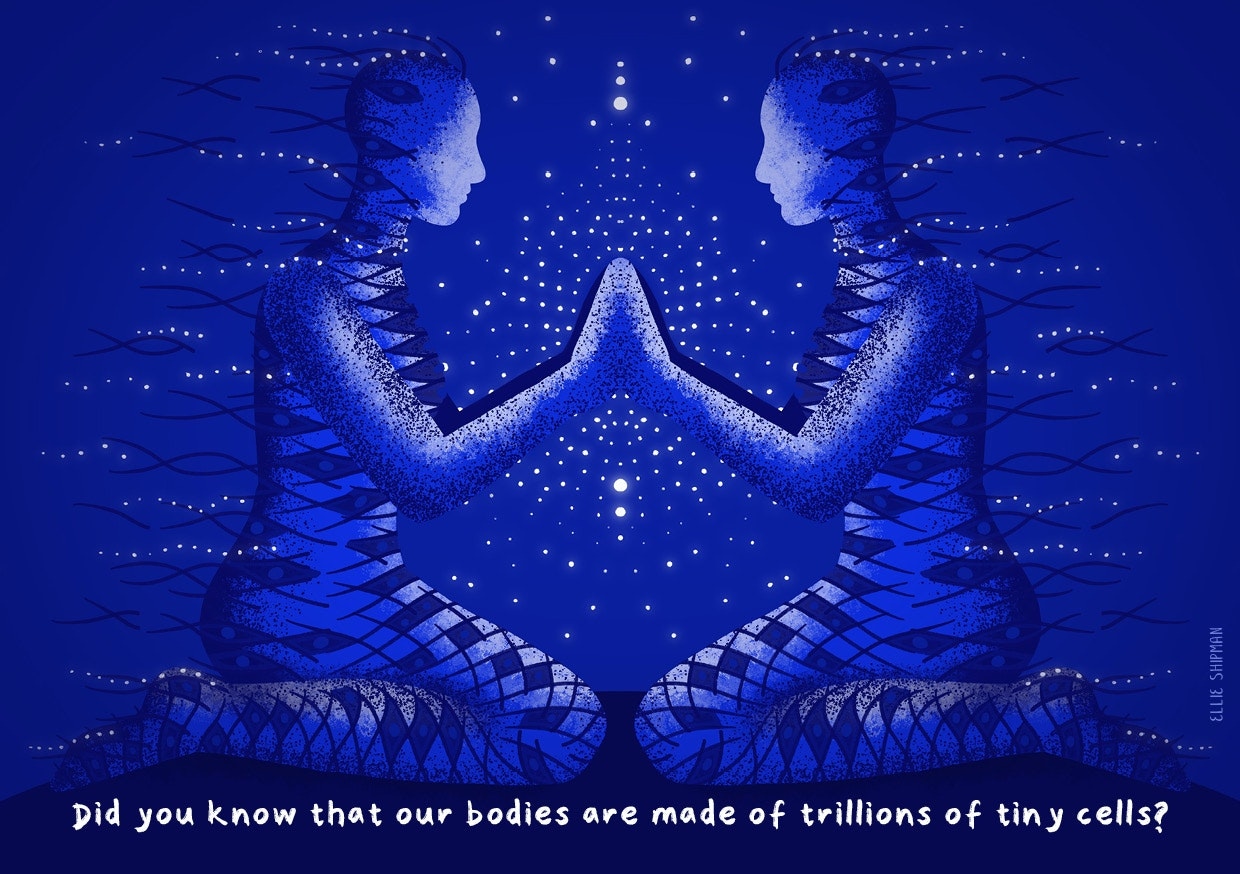
"Building relationships based on clear communication and expectations, trust, flexibility and an element of playfulness is key in my view."
Fabrik: We’d love to know more about your values on sustainability and how you embed this into your work?
Ellie Shipman: I have been concerned about climate change since I was a young child, and deciding to pursue my Masters in Sustainable Development was a great approach to clarifying and processing this concern into actionable behaviour which I now embed into my creative practice. This has included learning to draw boundaries around my own climate concerns to focus on specific issues I am particularly interested in and can apply my skills to address. For example, to highlight approaches to sustainable fashion I developed an exhibition for Fashion Revolution with Ellen Downes called Who Made My Clothes? at the Vietnamese Women’s Museum whilst living in Vietnam. At a smaller level it is embedded in simple things like using recycled materials in my installations; ensuring minimal wastage from projects; making pieces which are reusable in different contexts and only creating printed outputs where absolutely necessary. It’s also about seeing sustainability in other areas - for example supporting my participants’ wellbeing, connecting people to each other and to new opportunities, and building meaningful and respectful relationships with people, materials and processes at every level. And of course - it’s about being OK with not resolving it all!
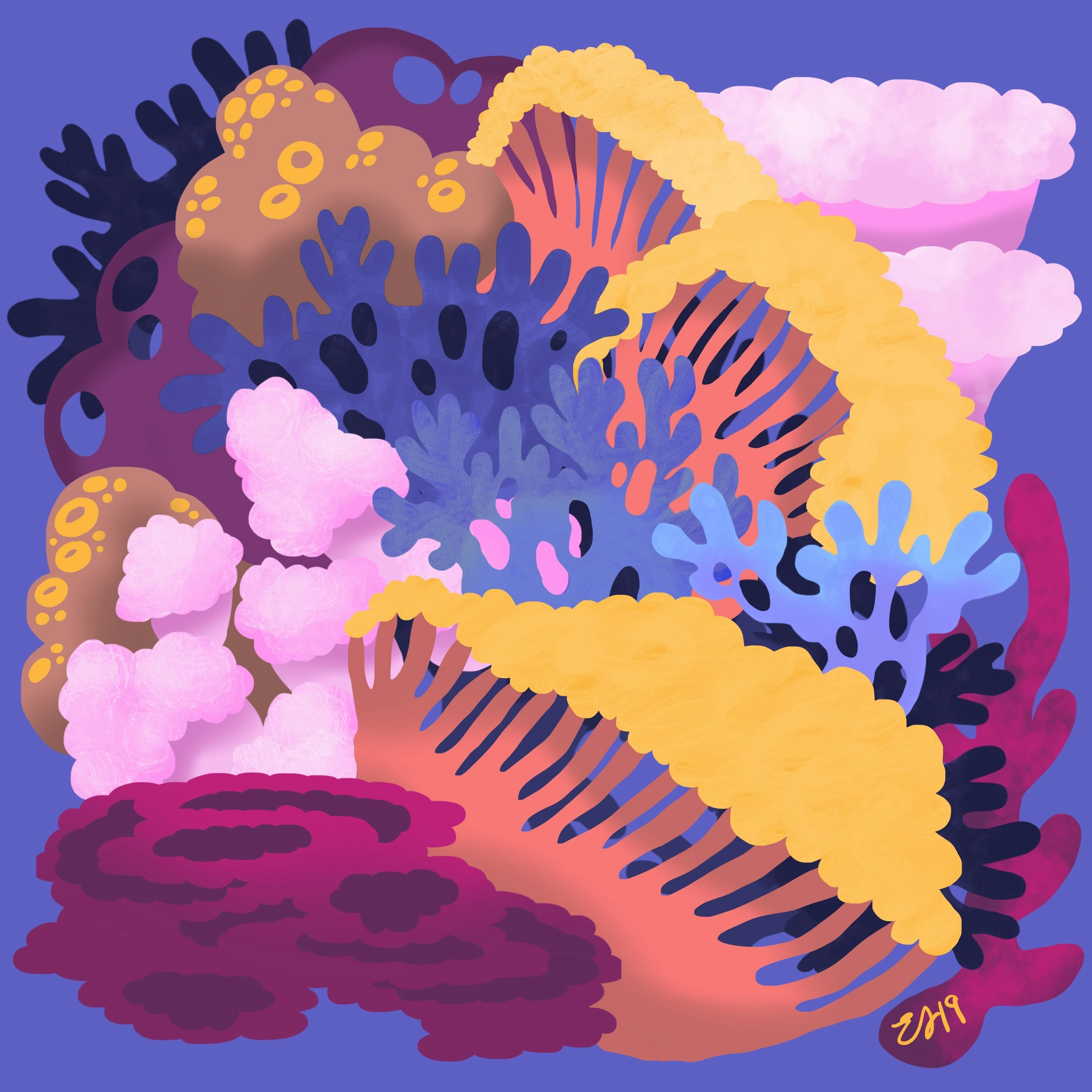
Fabrik: Are you able to give us insight on any exciting new projects that you may have in the pipeline?
Ellie Shipman: Alongside some upcoming research illustration projects on everything from urban agriculture to UK heatwaves and developing new classes for my teaching on Skillshare, I am currently finalising an exciting project to make larger-than-life freestanding illustrations inspired by Medieval history for a priory in Gloucester. They will form a sculpture trail and will be supported by an illustrated map prompting curious questions with the answers to be found on each illustration. Increasingly my participatory art and illustration work are overlapping which is really exciting - this is just the beginning!
Fabrik: Final question. What do you like most about Fabrik? What's your favourite feature?
Ellie Shipman: Fabrik has been a fantastic platform to showcase my creative practice in its various guises. It has helped me take ownership of my practice and share my portfolio as part of applications for countless projects. I can always trust the platform to make my work look it’s best, and I love how easy it is to update my latest projects or change the layout of my images.
Get In Condition
We're always keen to see what you've created. Follow our social feeds and tag your new work with #onfabrik when you're ready to show it to the world. Apologies; we can't add spec work, ads or commercial content to our Maker or Conditioner series.



